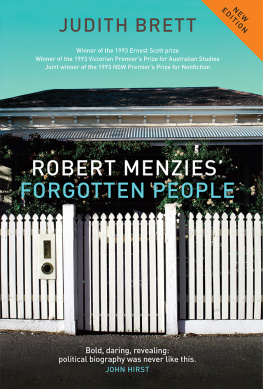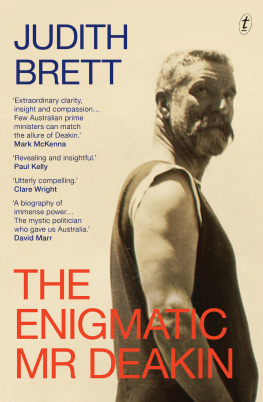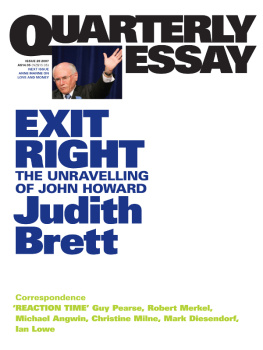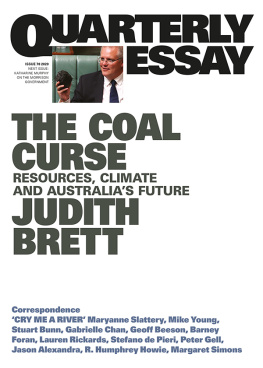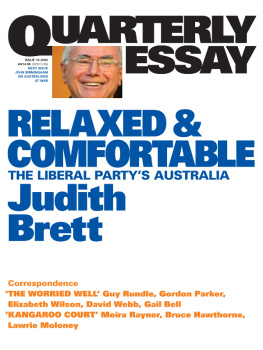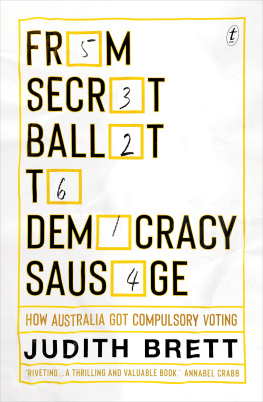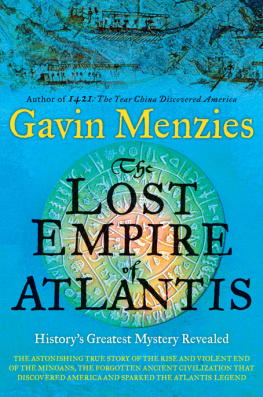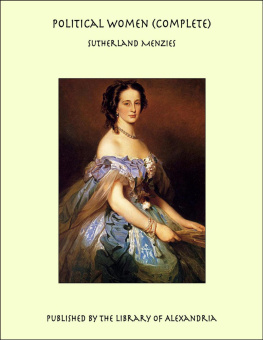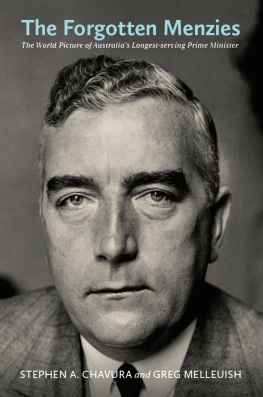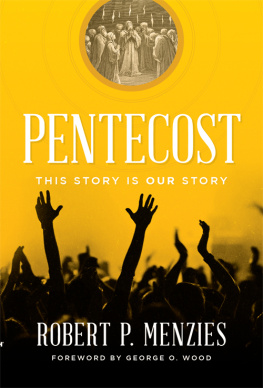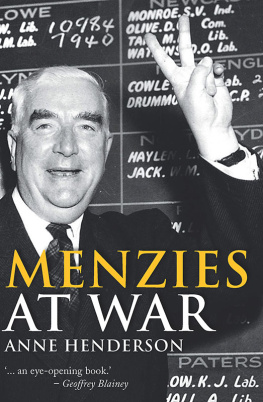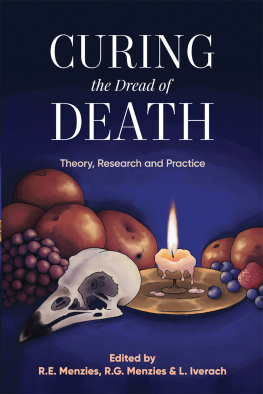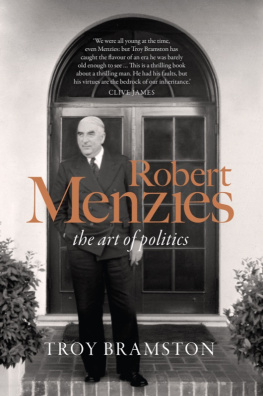ROBERT
MENZIES
FORGOTTEN
PEOPLE
JUDITH BRETT
MELBOURNE UNIVERSITY PRESS
An imprint of Melbourne University Publishing Ltd
187 Grattan Street, Carlton, Victoria 3053, Australia
www.mup.com.au
First published 1992
This edition published 2007
Text Judith Brett 2007
Design and typography Melbourne University Publishing Ltd 2007
This book is copyright. Apart from any use permitted under the Copyright Act 1968 and subsequent amendments, no part may be reproduced, stored in a retrieval system or transmitted by any means or process whatsoever without the prior written permission of the publishers.
Every attempt has been made to locate the copyright holders for material quoted in this book. Any person or organisation that may have been overlooked or misattributed may contact the publisher.
Cover design by Phil Campbell
Text design by Phil Campbell
Typeset by TypeSkill
Printed in Australia by Griffin Press, SA
National Library of Australia Cataloguing-in-Publication entry
Brett, Judith Margaret, 1949- .
Robert Menzies forgotten people.
2nd ed.
Bibliography.
Includes index.
ISBN 9780522853919.
1. Menzies, Robert, Sir, 18941978. 2. Menzies, Robert, Sir, 18941978 Psychology. 3. Prime ministers Australia Biography. 4. Australia Social conditions 20th century. 5. Australia Politics and government 19391945. 6. Australia Politics and government 19451965. I. Title.
994.042092
INTRODUCTION TO NEW EDITION
T HIS BOOK BEGAN in the early 1980s, when Menzies was not long dead and I was young. Hated, loved, revered, scorned, he was a political celebrity, a cultural touchstone for Australians to organise their memories, communicate their political allegiances and mark their generational differences. For some he had borrowed glamour from his much-loved royal family, and for others he had done deeds of such political mendacity that Australia was able to feel itself part of the twentieth centurys moral and political struggles.
When the book was published in 1992 and I was doing the media rounds as a very new author, interviewers ranging from Bert Newton to Philip Adams were far more interested in telling stories about their encounters with the great man than in anything I had to say. And he was always just Menzies: the name heavy with the jowls of masculine power, but also familiar and homely. Menzies might have been the embodiment of political power, but he was ours, and in having spoken with him, seen him at a public meeting or school speech night, known his driver or an ex-neighbour, one could feel part of Australias history.
The manuscript I delivered to Hilary McPhee in 1991 had an introductory chapter which did not survive her editors judgement about popular readability. The chapter went some way to describing the books theoretical context and methods. In my work as editor of Meanjin I had become adept at ridding academic articles of their theoretical superstructures, and I followed her advice, though with some regret. I would have liked to have shown readers how I developed my interpretations and arguments, so they could better judge what I had done with the evidence. I left clues to my theoretical sources in the choice of words, in expository half-sentences and in endnotes, but if anyone noticed the clues at the time, no one will now. Books are part of conversations, and many of the conversations this book was having are long over. In the introduction to this new edition, I want to revive some of these conversations to show the books origins in my own intellectual biography.

